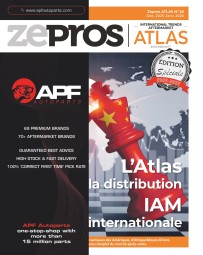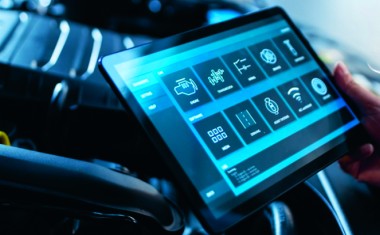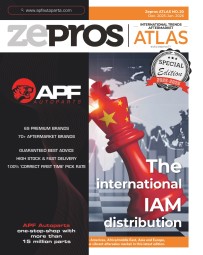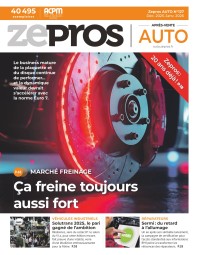
After-sales, the last bastion of European excellence, but for how long..

In its global expansion strategy, China, through its car manufacturers, aims to sell its battery-powered models in Europe. With the Aftersale Service ?
"Each Chinese manufacturer has four or five brands, but it doesn’t sell all of them outside of China. For example, SAIC (MG's parent company) sold 230,000 vehicles in Europe in 2023, half in the UK. BYD has now secured the second position in terms of sales," said Benoît Brancheriau, Project Manager at Roland Berger during the last IBIS Global Summit. Chinese manufacturers benefit from a strong verticality in decision-making, a robust sense of collaboration, and affordable labour and R&D that enables them to absorb investments more swiftly, he adds. Customs duties of up to 40% could dampen their enthusiasm, but they won’t deter plans to establish factories in Europe, even if these duties temporarily hinder their ability to generate cash.
The arrival of Chinese factories in Europe
Four groups—SAIC, Geely (the owner of Volvo Cars), BYD and Cherry—are initiating the construction of factories in Europe. BYD has announced it will build sites in Hungary and Turkey from 2025, enabling it to circumvent the obstacles. It’s worth noting that these sites don’t hinder China’s expansion into other markets where Europe has fallen behind due to political reasons, in Iran, Russia and Africa for example. This is true for ICE vehicles that do not need to comply with standards as strict as Euro 7, but that is another story.
If the offensive of Chinese manufacturers with their new electric vehicles outside China is a reality, it raises several questions regarding after-sales support. Can we still proudly proclaim that China lacks an automobile culture and use it as a shield safeguarding our distribution and repair networks?
Europeans generally believe that the Chinese lack knowledge of after-sales because they assume that importing their products and selling them is sufficient. Sales first and foremost! "They often discover after-sales issues when they have already become unavoidable," we are told. Those who have embraced the subject have established a European headquarters, typically located in the Netherlands or Germany, along with a “spare parts” store in Belgium. At BYD, the parts are designed in China, then distributed in Europe via a central platform based in the Netherlands, for 99% of its catalogue.
However, this is insufficient to provide a comprehensive view of Europe and its twenty-seven member states, encompassing twenty-seven distinct cultures. "Asian brands provide European roadside assistance that often falls short in terms of geographical coverage compared to Western firms. Additionally, they sometimes offer battery recycling and diagnostic tools in English, which European mechanics may not comprehend", observes Serge Cometti, who notably participated in the launches of MG then Aiways and Maxus in Europe from 2020. But as proof of the resilience of Chinese brands, MG (SAIC) and BYD have turned to dealer networks for their distribution and after-sales service. "In France, for example, we already have around forty service points for repairs and the objective by 2025 is to have around a hundred. These are dealers trained to our quality standards, including in customer service. We don’t practice customer retention in our network. We respect the customer’s choice of repair shop, provided that the selected garage is trained in our processes. To encourage this, we plan to set up a training facility to share our knowledge with these repair shops," explains Yacine Ayd, Regional Service Manager for France.
Enhanced after-sales services and value-added offerings
On the ground, the conviction remains that Europe is ahead of China "in understanding the customer and their needs". This includes understanding personalised multi-service for each type of customer and age of the vehicle. Dealer networks, which have access to electric vehicles before the independent sector, can extend their loyalty-building services beyond four years. This is a critical issue, considering that after-sales accounts for 60 to 80% of a distributor’s business. Moreover, the switch to electric vehicles results in a 30 to 40% loss of workshop business. New services are flourishing, including Remote Diagnostic and battery replacement. Additionally, there are a variety of new services offered from the time of vehicle purchase, such as service contracts, concierge service, telephone assistance, charging stations and home maintenance and repair. Because the electric vehicle is a vehicle like any other. It is driven and consumes parts. After five years, a visit to the workshop is mandatory and not just to change the tyres! The electric vehicle experience in Scandinavia and the Netherlands, where over 50% of cars are electric, reveals that repairs are more profitable compared to conventional ICE vehicles. This is primarily due to the higher cost of components like cooling systems, shock absorbers, suspension, and of course, the battery.
Adaptability
Adaptability
A creative and competitive service is key to staying in the race. For François Delion, Renault’s Global After-Sales Director, it’s a long-distance race against a formidable competitor. "China is learning and progressing very quickly. My current advantage lies in the services I can provide in our markets and the after-sales experience I can offer customers. Something a Chinese brand cannot yet provide. But for how long? The Chinese players’ remarkable ability to swiftly catch up is no longer a matter of debate. To maintain our lead in after-sales service, we must progress at least as quickly as them. It’s a long-distance race that spans various aspects, including brand experience, the quality of service, “phygitalization,” and competitiveness”.










